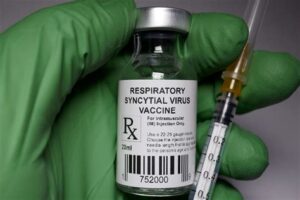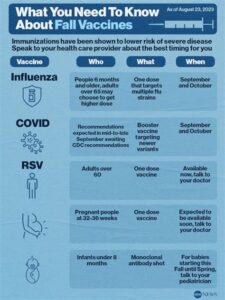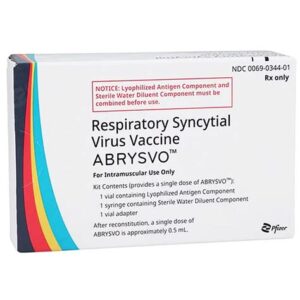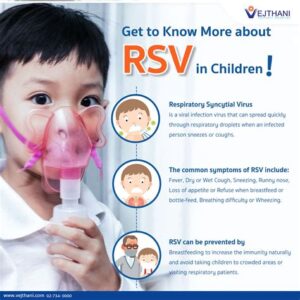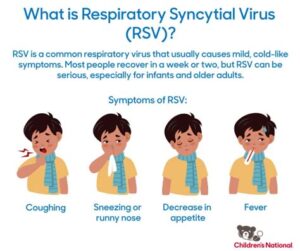Discover the essentials of CPT codes, focusing on RSV vaccine administration, coding accuracy, documentation requirements, and the repercussions of incorrect coding.As healthcare professionals navigate the complexities of medical billing and coding, understanding the specific nuances of CPT (Current Procedural Terminology) codes becomes essential—particularly when it comes to the administration of the RSV (Respiratory Syncytial Virus) vaccine. With the increasing focus on RSV prevention, the accurate identification and utilization of the correct CPT code for vaccine administration can significantly impact reimbursement and patient care. In this blog post, we will explore the intricacies of RSV vaccine administration CPT codes, highlight the importance of correct coding, outline documentation requirements, and examine the potential effects of incorrect coding practices. Whether you’re a medical biller, healthcare provider, or administrator, gaining a deeper understanding of these aspects will ensure that you effectively navigate the complexities of vaccine coding and contribute to improved patient outcomes.
Understanding CPT Codes
Current Procedural Terminology (CPT) codes are an essential part of the healthcare system, providing a uniform language for reporting medical, surgical, and diagnostic services. They are published and maintained by the American Medical Association (AMA) and represent a standardized coding system used across various healthcare settings.
CPT codes are categorized into three distinct classes: Category I, Category II, and Category III.
- Category I: Covers the majority of medical services and procedures.
- Category II: Focuses on tracking and performance measures.
- Category III: Includes temporary codes for emerging technologies and procedures.
Understanding and utilizing CPT codes accurately is critical for healthcare providers, as they directly impact billing, insurance claims, and patient care. Incorrect coding can lead to denied claims and financial losses, making it crucial for practitioners to stay informed about updates and guidelines related to these codes.
RSV Vaccine Administration CPT Code
In the field of healthcare, Current Procedural Terminology (CPT) codes play a crucial role in accurately documenting and billing for medical services. For the Respiratory Syncytial Virus (RSV) vaccine administration, it’s essential to use the correct CPT code to ensure proper reimbursement and compliance with healthcare regulations. Understanding the specific code associated with the RSV vaccine helps streamline the coding process and enhances the quality of patient care.
The CPT code for the RSV vaccine administration is 90460 for the administration of the vaccine (with a focus on the initial dose). This code specifically applies to vaccines given to children under one year of age. The secondary code, 90461, may be used to denote each additional vaccine administered during the same visit. Coding accurately not only aids in reimbursement but also assists in public health tracking and reporting.
When coding for the RSV vaccine administration, it is important to document the patient’s age, the specific vaccine administered, and any other relevant details. Failing to use the correct CPT code can lead to billing errors, decreased reimbursements, and potential compliance issues. Therefore, healthcare providers must stay informed about the latest coding updates and ensure that their coding practices reflect current guidelines.
Importance of Correct Coding
Correct coding is essential in the healthcare industry for a variety of reasons. First and foremost, accurate CPT (Current Procedural Terminology) codes ensure proper reimbursement from insurance companies. When healthcare providers submit claims with the wrong codes, they risk delays in payment or outright denials, which can negatively impact the financial health of their practice.
Additionally, correct coding plays a crucial role in patient care. It allows healthcare providers to maintain comprehensive records of treatments and services administered. This not only aids in proper diagnosis and treatment but also ensures that patients receive the right follow-up care according to their history as documented by accurate coding.
Moreover, adhering to proper coding standards is vital for compliance with various regulations and guidelines. Incorrect coding can lead to audits, penalties, and even legal issues for healthcare professionals. Therefore, understanding and implementing the correct coding practices is not just a matter of accuracy but also a significant requirement for maintaining professiona
Documentation Requirements for CPT Code
When it comes to ensuring accurate billing and proper patient care, the documentation requirements for CPT codes are paramount. Each CPT code, including those for the RSV vaccine administration, has specific criteria that must be met to validate the services provided. Proper documentation not only supports the medical necessity of the procedure but also protects healthcare providers from potential audits and denials.
| Documentation Component | Description |
|---|---|
| Patient Identification | Full name, date of birth, and other identifying information. |
| Vaccine Details | Specific vaccine name, dosage, and lot number. |
| Date of Administration | Exact date and time when the vaccine was administered. |
| Provider Information | Name and credentials of the healthcare provider who administered the vaccine. |
| Patient Consent | Documentation confirming informed consent was obtained from the patient or guardian. |
In addition to the components listed above, it is critical to include a clear indication of the medical necessity for the RSV vaccine. This statement should reflect the patient’s health status and any relevant medical history that justifies the administration of the vaccine. Accurate documentation will ultimately facilitate smoother claims processing and ensure that healthcare providers are reimbursed for the services they provide.
Effects of Incorrect Coding
Incorrect coding can have a myriad of negative effects on healthcare operations, patient care, and reimbursement processes. Understanding these implications is crucial for any healthcare provider, especially when it comes to critical services like vaccine administration, such as the RSV vaccine.
One of the most significant impacts of incorrect coding lies in the realm of billing and reimbursement. If a CPT code is not accurately assigned, it can lead to delayed payments or, in some cases, total denial of claims. This not only affects the cash flow of the practice but also increases the administrative burden as staff must spend time appealing denied claims and correcting errors.
Moreover, incorrect coding may lead to statistical inaccuracies. Data collected on vaccine administration, for instance, may be flawed, which can hinder public health reporting and affect resource allocation. When proper CPT codes are not used consistently, it can ultimately lead to a misrepresentation of vaccination rates and other vital statistics needed for community health assessments.
In summary, the effects of incorrect coding extend beyond simple errors; they can jeopardize finances, impair data integrity, and even impact patient outcomes through possible delays in necessary medical care.
Frequently Asked Questions
What is the purpose of the RSV vaccine?
The RSV vaccine is designed to protect individuals, particularly infants and young children, from respiratory syncytial virus (RSV), which can cause severe respiratory illnesses.
What does CPT stand for in medical coding?
CPT stands for Current Procedural Terminology, which is a medical code set created to report medical, surgical, and diagnostic services and procedures.
Why is it important to use the correct CPT code for vaccine administration?
Using the correct CPT code for vaccine administration ensures accurate billing, helps with tracking immunization rates, and complies with healthcare regulations.
What is the CPT code for RSV vaccine administration?
The CPT code for RSV vaccine administration may vary based on the specific vaccine and the method of delivery; it’s important to refer to the latest CPT coding guidelines for accurate information.
Who primarily receives the RSV vaccine?
The RSV vaccine is primarily recommended for infants and young children at high risk for severe RSV disease, including those with certain underlying health conditions.
Are there any specific guidelines for documenting RSV vaccine administration?
Yes, documentation should include the date of administration, vaccine lot number, the name of the provider, and any other relevant details as outlined by health authorities.
What are the potential side effects of the RSV vaccine?
Potential side effects of the RSV vaccine can include mild reactions like swelling at the injection site, fever, and irritability; however, serious side effects are rare.
